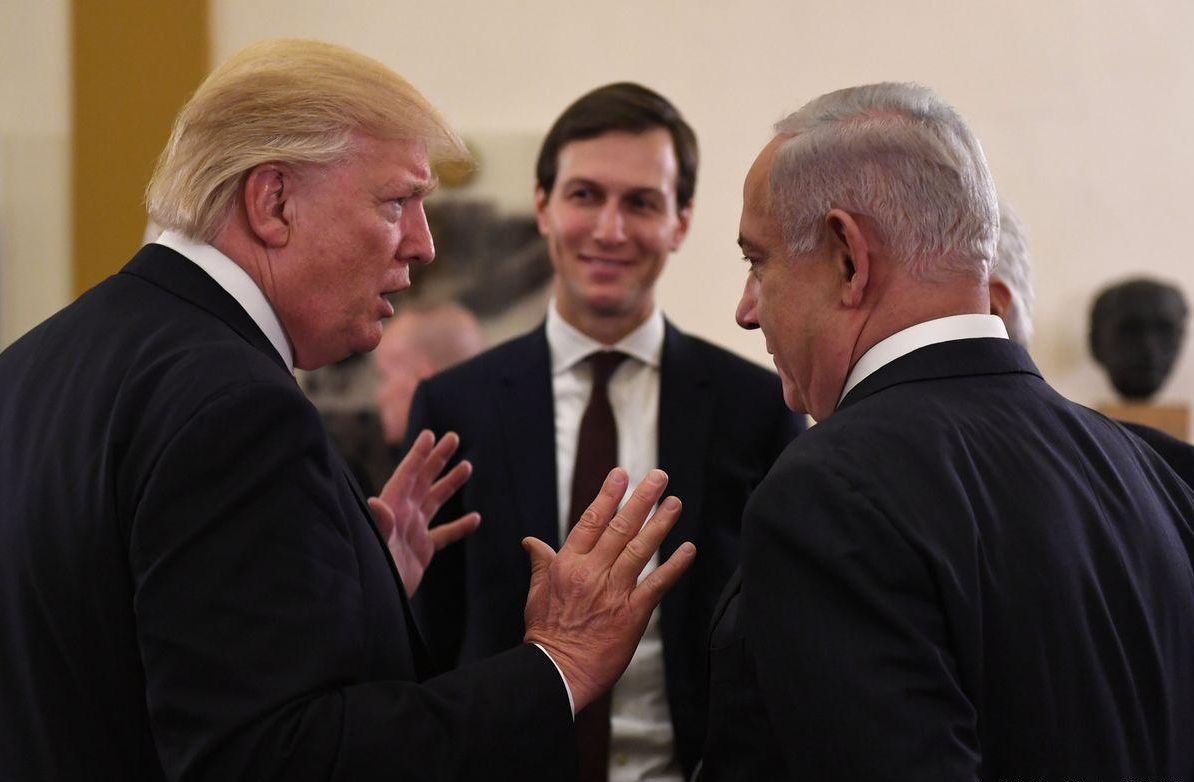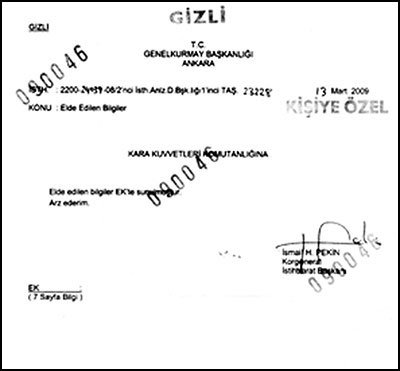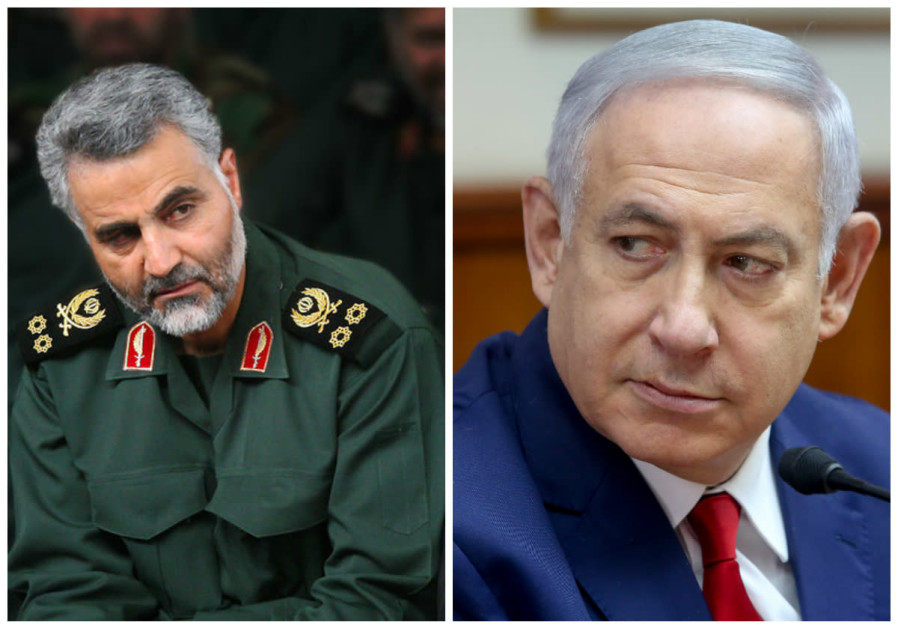ΒΑΡΕΘΗΚΑΜΕ ΝΑ… ΕΝΗΜΕΡΩΝΟΥΜΕ ΒΡΕ!..
1. 1000 μπράβο Προεδράρα μας!.. Ο ΘΕΟΣ να στο “δώσει” πλουσιοπάροχα! ΑΞΙΖΟΥΝ Ο,ΤΙ ΚΑΝΕΙΣ ΟΙ ΨΥΧΟΥΛΕΣ ΑΥΤΕΣ, ΑΛΛΑ ΚΑΙ Η Κα ΕΛΠΙΔΑ!!!
[Ας στηρίζει, δεν πειράζει, ο σύζυγός της Βαρδής ΒΑΡΔΙΝΟΓΙΑΝΝΗΣ, όπως όλα δείχνουν,

τον “ΣΥΡΙΖΑ”, όντας “τοποτητηρητής” στην χώρα μας των “ΔΗΜΟΚΡΑΤΙΚΩΝ” Πετρελαιάδων, των Η.Π.Α., αυτών που ελέγχει η “Παγκοσμιοποίηση”, λέγε με “Διεθνείς Εβραίοι”!.. Είναι όμως πραγματικός ΠΑΤΡΙΩΤΗΣ και ΕΛΛΗΝΑΣ! Και πάλι όμως, δεν πειράζει! Καλά που έχουμε οι Έλληνες και κάποιους σαν αυτόν και σαν εσένα και υφιστάμεθα ακόμα!.. Η σύζυγός του είναι σε ΨΥΧΗ ίσως και καλύτερη(!) του ΑΓΙΟΥ αδελφού του ΠΑΥΛΟΥ, ΠΟΥ ΔΕΝ ΥΠΗΡΧΕ ΣΠΙΤΙ ΚΑΙ ΟΙΚΟΓΕΝΕΙΑ ΜΕ ΑΝΑΓΚΗ, ΠΟΥ ΝΑ ΜΗΝ ΕΙΧΕ ΒΟΗΘΗΣΕΙ, ΟΣΟ ΖΟΥΣΕ, όπως ακριβώς έκανε(!!!) και η ΜΑΝΑ τους!..

Βαγγέλης Μαρινάκης: «Να υπάρξει κατηγορία “ΕΛΠΙΔΑ ΝΙΚΗΤΗΣ”! Για τους πραγματικούς νικητές της ζωής»!!!
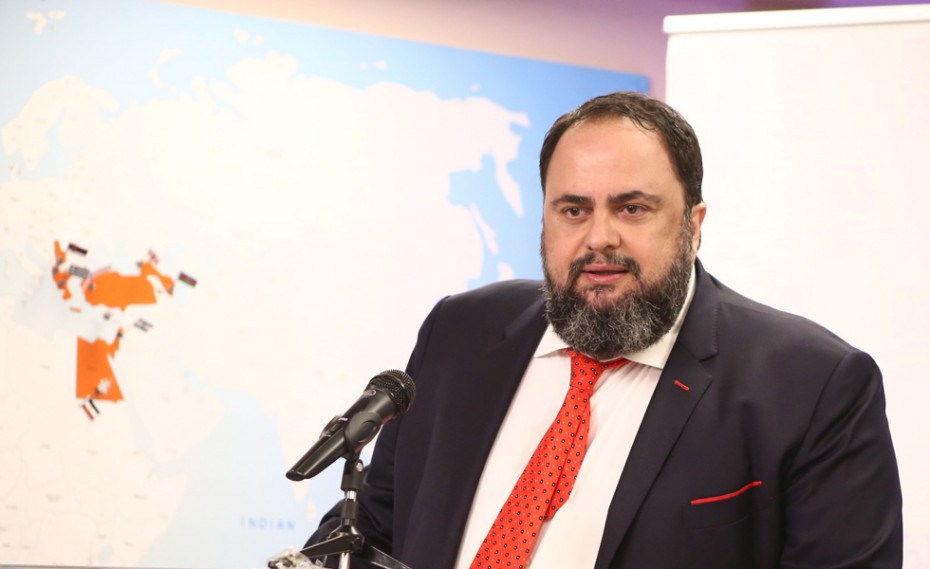
Για μια ακόμα χρονιά ο Ολυμπιακός βρέθηκε στο Σύλλογο “Ελπίδα” δείχνοντας το κοινωνικό του πρόσωπο. Η μεγαλύτερη ελληνική ομάδα απέδειξε για μια ακόμα φορά πώς είναι δίπλα σε όσους έχουν ανάγκη, συνεχίζοντας τόσο εκείνη όσο και ο ηγέτης της, την αδιάκοπη και διαρκή προσφορά στην κοινωνία.
Ο κ. Βαγγέλης Μαρινάκης στην ομιλία του πρότεινε στην κα Μαριάννα Βαρδινογιάννη να δημιουργηθεί μια νέα κατηγορία από την Ελπίδα, όπως αυτή των καλλιτεχνών και των πρωταθλητών, οι Νικητές της Ελπίδας, για τα παιδιά και της οικογένειές τους, τους πραγματικούς νικητές της ζωής!
Ο ηγέτης του Ολυμπιακού τόνισε: «Πρώτα από όλα είμαι χαρούμενος που είμαι εδώ, μαζί με όλη την ομάδα, για ένατη συνεχή χρονιά. Για εμάς, όπως η κα. Βαρδινογιάννη είπε, έχει γίνει μέρος της παράδοσής μας και της οικογένειάς μας να είμαστε εδώ, με τα παιδιά.
Επίσης είμαστε πολύ χαρούμενοι να βλέπουμε πως κάθε χρόνο υπάρχει μία συνεχής πρόοδος εδώ και πως πολλά παιδιά έχουν σωθεί. Και όχι μόνο αυτό, αλλά έχουν μπει και στην κοινωνία χωρίς κανένα πρόβλημα. Και φυσικά όλα αυτά έχουν συμβεί με το πάθος και τη διαρκή όρεξη της κας Βαρδινογιάννη, η οποία θέλει να βελτιώνει την όλη οργάνωση χρόνο με τον χρόνο.
Επιπλέον, επειδή είδαμε τις κατηγορίες των «Καλλιτεχνών της ΕΛΠΙΔΑΣ», των «Πρωταθλητών της ΕΛΠΙΔΑΣ», αυτό που έχουμε να πούμε, ως ΟΛΥΜΠΙΑΚΟΣ, είναι πως από την αρχή αυτό που έχουμε προσπαθήσει να πετύχουμε, με αυτή την παράδοση είναι πως ο Ολυμπιακός είναι ένας νικητής!
Αυτό το κάνουμε επίσης μαζί με τον Δήμο Πειραιά, με τον «Πειραιά Νικητή» και προτείνουμε να έχουμε μία κατηγορία στην ΕΛΠΙΔΑ, την «ΕΛΠΙΔΑ ΝΙΚΗΤΗΣ», καθώς όλα αυτά τα παιδιά και οι οικογένειές τους είναι νικητές στην ζωή!
Ευχαριστώ πολύ και θέλω να σας ευχαριστήσω ξανά για όσα κάνετε για την ελληνική κοινωνία και για όλους εμάς. Όλα τα καλύτερα εύχομαι, υγεία και ευτυχία για το 2019!»
2. POMPEO’S CAIRO SPEECH
Addressing Iran and Hezbollah – and rebuking Obama’s Mideast policies.

Secretary of State Mike Pompeo, on a mission to the Middle East allies, delivered a “scathing rebuke” of the Obama administrations Mideast policies at the American University in Cairo, Egypt, last week. In his speech, Pompeo pointed out that while Hezbollah has a major presence in Lebanon, the U.S. will not accept the status quo. Addressing Iran, Pompeo stated that the U.S. will not let Iran turn Syria into the next Lebanon, and will act with diplomacy and partners to “expel every Iranian boot” from Syria.
Pompeo’s choice of Cairo seems to have been symbolic. Ten years earlier, President Obama delivered his message to the Arab and Islamic world from Al-Azhar University, the foremost Sunni-Muslim religious institution in Cairo. Pompeo sought to mend fences with the Sunni-Arab states which were disappointed by Obama, and skeptical about Trump’s intentions. According to Pompeo, Obama promised that the U.S. would open a new chapter with the Arab and Muslim states. Instead, Pompeo said, his policies projected weakness, and encouraged radical elements in the region, especially Iran.
Pompeo said:
“It was here, in this city, that another American stood before you. He told you that radical Islamist terrorism does not stem from an ideology. He told you that 9/11 led my country to abandon its ideals, particularly in the Middle East. He told you that the U.S. and the Muslim world needed “a new beginning”. The result of these misjudgments have been dire.”
This might have been Pompeo’s way to reference the Obama administration’s being upset by the removal of Mohammad Morsi, the Muslim Brotherhood President of Egypt. Morsi was removed by the current President Abdel Fattah el-Sisi, following large scale demonstrations in Egypt against the radical regime of Morsi, who dragged Egypt into insolvency.
Pompeo also made a point in the choice of his venue for his speech. He stated:
“This trip is especially meaningful for me as an evangelical Christian, coming so soon after the Coptic church Christmas celebrations. This is an important time. We are all children of Abraham: Christians, Muslims, and Jews. In my office, I keep a Bible open on my desk to remind me of G-d and His Word, and The Truth.”
Pompeo declared that the U.S. is determined to protect its allies, removing Iran from Syria and Hezbollah in Lebanon. Pompeo was not only seeking to confront the Obama legacy, but also mitigate the effects of President Trump’s recent declaration on the impending withdrawal of U.S. troops from Syria, and his (Trump’s) statement that as far as he (Trump) is concerned, Iran can do whatever it wants in Syria. Pompeo said, “America’s reluctance, our reluctance, to wield our influence kept us silent as the people of Iran rose up against the mullahs in Tehran in the Green Revolution. The Ayatollahs and their henchmen murdered, jailed, and intimidated freedom-loving Iranians, and they wrongly blamed America for this unrest when it was their tyranny that had fueled it. Emboldened, the regime spread its cancerous influence to Yemen, to Iraq, to Syria, and still further into Lebanon.”
Pompeo added, “Our penchant, America’s penchant, for wishful thinking led us to look the other way as Hezbollah, a wholly owned subsidiary of the Iranian regime, accumulated a massive arsenal of approximately 130,000 rockets and missiles. They stored and positioned these weapons in Lebanese towns and villages in flagrant violation of international law. That arsenal is aimed squarely at our ally Israel.”
In another dig aimed at Obama’s Cairo speech of 2009, Pompeo said:
“Our eagerness to address only Muslims and not nations, ignored the rich diversity of the Middle East and frayed old bonds. It undermined the concept of the nation-state, the building block of international stability. And our desire for peace at any cost led us to strike a deal with Iran, our common enemy.”
Unfortunately, there appears to be a contradiction between Secretary of State Pompeo’s words and his own State Department. While Pompeo promised to confront Hezbollah, the Administration is cooperating with the Lebanese government headed by President Michel Aoun, who is nothing more than a tool in the hands of Hezbollah. The Administration is, in fact, set to provide the Lebanese army, which is fully cooperating, if not being controlled by Hezbollah, with financial aid and arms shipments.
The Trump administration has shown its full determination in combatting Iran economically with some measured success. The U.S. imposed sanctions have had an impact on Iran’s treasury. The Ayatollahs regime has been forced to curb some of its aggressive and nefarious activities in the region, and reduce the number of its operatives in Syria and Yemen. In terms of western values, combatting Iran economically alone should suffice. After all, in the western mind, the welfare of one’s people should be paramount. That is not the case however, with the Iranian mullahs’ mindset. The U.S. and the West should be prepared for a long and multi-faceted struggle with the Ayatollah Khamenei’s regime. It may yet involve military action, given Iran’s deployment of Shiite militias from Afghanistan, Iraq, Pakistan, and its notoriously belligerent Islamic Revolutionary Guard Corps (IRGC), who are commandeering international terrorist activities.
Europe has recently been exposed to the IRGC terror on its soil. Thanks to intelligence provided by Israel, Iranian agents were caught trying to assassinate Iranian opposition leaders in France, Denmark, and the Netherlands. As a result, the European Union (EU) has imposed sanctions on the IRGC. Another danger Iran poses to the U.S. and the West is in its development of long-range missiles that can reach Europe, and ultimately the U.S. When the Islamic Republic of Iran has mastered the technology to complete the construction of these missiles, it is more than likely that they will be able to threaten the West with nuclear charged long-range missiles. It is therefore incumbent upon the U.S. and its Western allies to consider combatting Iran beyond economic pressure.
Pompeo explained that,
“In Syria, the United States will use diplomacy, and work with our partners to expel every last Iranian boot, and work through the UN-led process to bring peace and stability to the long-suffering Syrian people. There will be no U.S. reconstruction assistance for areas of Syria held by Assad until Iran and its proxy forces withdraw and until we see irreversible progress toward a political resolution.”
And in Lebanon,
“The U.S. will work to reduce the threat of Hezbollah’s missile arsenal, which is aimed at Israel and can reach all points inside of that country. Many of these rockets are equipped with advanced guidance systems, courtesy of Iran, and that’s unacceptable. Iran may think it owns Lebanon. Iran is wrong.”
Although addressing not the most Israel-friendly crowd, Pompeo reiterated U.S. support for Israel. He stated that,
“The United States fully supports Israel’s right to defend itself against the Iranian regime’s aggressive adventurism. We will continue to ensure that Israel has the military capacity to do so decisively.”
Secretary of State Pompeo presented a decisive and more muscular U.S. policy for the Middle East. He did not attempt to appease Iran’s mullahs, nor heap praise on Islam. Nevertheless, in Egypt, as in the moderate Sunni-Muslim states, his word provided encouragement and hope. As for Israel, Dore Gold, former director general of Israel’s foreign ministry, said Pompeo’s “Critique of Iranian expansionism was very important for Israel.”
3.
Trump asks Netanyahu to make his peace plan the focal election campaign issue
President Donald Trump is asking Prime Minister Binyamin Netanyahu to build his campaign around the “Deal of the Century” for an Israeli-Palestinian peace, DEBKAfile reports exclusively. This insistent request keeps on coming up in contacts with Washington, including Netanyahu’s conversation with Secretary of State Mike Pompeo in Brazil on Tuesday, Jan. 1. The peace plan’s authors, the president’s advisers Jared Kushner and Jason Greenblatt, have been placed on standby for finally going public on their product in the near future.
In recent consultations at the White House, in which US ambassador to Israel David Friedman also participated, the president was advised that publication of the peace plan would not be good for the prime minister and his Likud’s chances and it would be better to wait until after the April 9 election. Trump, however, stood by his demand and put forward the following arguments for an early date of publication:
- Making it a central feature of Netanyahu’s campaign would reuse the general election as a kind of referendum for its popular endorsement.
- Building a new coalition cabinet after the vote could be a drawn-out process consuming several months.
- As a focal of the prime minister’s bid for re-election, the plan would fit in well with his plans for visits in the critical months of February and March of a string of world leaders, including Arab heads of government, to showcase his successes as minister of foreign affairs and defense. Trump believes that knowing the peace plan for the Palestinians was imminent would provide Arab leaders, especially in the Gulf, with an added incentive to make state visits to Israel or invite Netanyahu to visit their capitals.
Some of Trump’s advisers suggested as a compromise that just sections of the peace plan be released at this stage, not the entire opus. They hoped that Trump would be deterred from losing patience and turning to Twitter to unveil his plan, with the same abruptness as the US troop pullback from Syria last month. He could do this in a series of tweets.
On Tuesday, Jan. 1, Israel’s party strategists were engrossed in calculating how the Trump peace plan landing in the middle of the election campaign would affect their prospects. This scenario appeared more pressing even than Labor leader Avi Gabbay’s sudden dumping of Tzipi Livni which was making waves. They also treated as a flash in the pan the media reports, soon to be denied, claiming that Attorney General Avichai Mendelblit had conferred with a flock of ex-prosecutors and legal whizzes on how to handle the cases against Netanyahu.
4.
Israel drops below Iran in international military ranking
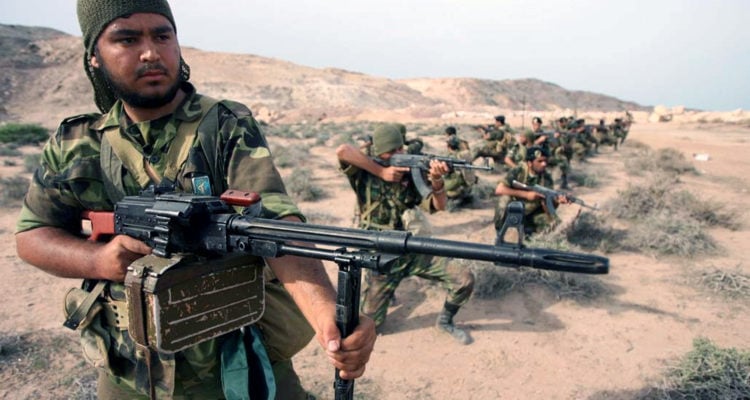
By David Jablinowitz, World Israel News
Israel’s military has fallen below Iran in the ranking of military powers, as determined by Global Firepower (GFP).
GFP is an international defense research group. For 2018, it ranks Israel 16th out of the 136 countries surveyed.
In the latest survey, Israel also finds itself below such countries as Egypt and Indonesia and just above Pakistan and North Korea.
Despite its drop, the Israeli military is described in the survey as being “leaps ahead of its regional competition – who also struggle with ongoing internal stability issues.”
It adds that in compiling the ranking, it takes into account, to varying degrees, a country’s total available personnel, logistical flexibility, membership in NATO, local defense industries, natural resources, geographical size, and financial stability, among other factors.
Current political and military leadership in a particular country is not taken into account, says GFP.
5.
Lebanese Daily: Hamas uncovers Israeli high-tech espionage effort against senior leader

By Batya Jerenberg, World Israel News
Gazan security forces have found several Israeli spying devices planted near the home of the chief of staff of Hamas’ military wing, Lebanon’s Al-Akhbar paper reported Monday.
Marwan Issa, deputy head of Izz ad-Din al-Qassam Brigades, lives in the al-Bureij refugee camp in the central Gaza Strip. One of Hamas’ top military commanders for years, he is known to keep a very low profile, and rarely makes public statements.
Hamas called the devices “a quantum leap in espionage operations,” but said it thwarted the Israeli effort by arresting the Palestinian who planted the devices. The alleged collaborator also led them to other spy equipment he had hidden in the area, Hamas said.
The paper reports that the recent arrest of 45 “agents of the occupation” uncovered a treasure trove of information regarding Israel’s efforts to monitor the movements of Hamas military leaders in the Strip.
Soon after the operation, Hamas claimed that the purpose of the Israeli operation had been to install spying equipment and other devices. The monitoring equipment that “would make it easy for [Israel] to kill, hack and abduct,” Deputy Hamas leader Khalil al-Hayya said at the time.
On January 12, Brigades’ spokesman Abu Obeidah echoed these allegations, claiming that the IDF mission had been to infiltrate Hamas’ telecommunication network.
The Lebanese report said that the recently discovered listening devices indicated that Israel had “failed” in its efforts to spy on Hamas through phones and other communication devices, as the eavesdropping equipment proved a change in tactics
6.
Netanyahu: No Israeli tolerance for Iranian, Syrian “aggression”
Speaking at the inauguration of Ramon Airport in southern Israel Monday, Prime Minister Binyamin Netanyahu said: “Last night the air force strongly attacked Iranian targets in Syria after Iran launched a missile from there at our territory,” Netanyahu went on to say: “We will not ignore such acts of aggression when Iran attempts to entrench itself militarily in Syria and explicitly declares its intention to destroy Israel.”
7.
How “Shin Bet” chief’s election meddling comment on Iran and Hizballah morphed into media frenzy against Russia.
Shin Bet chief Nadav Argaman carefully avoided names when he warned that a” foreign country” intended interfering in Israel’s coming election. But Israel’s media instantly decided he meant Russia, without explaining what interest Vladimir Putin had in disrupting Israel’s election.
In his lecture on Jan. 8 before the Friends of Tel Aviv University, Argaman said: “I don’t know to whose benefit or disadvantage that intervention is aimed, or that country’s political interest, but it will certainly intervene – and I know what I am talking about.” But then, in answer to a question from audience, the Shin Bet chief remarked in an aside that Iran and Hizballah may be planning cyber attacks on targets in Israel.
This remark was drowned out by the wild panic Israeli media whipped up against Russia, which no one had accused. Attempting to cool the hysteria, the Shin Bet security service issued a statement asserting that Israel and its intelligence services were fully capable of handling a cyber attack and armed with all the tools and resources for locating, monitoring and thwarting any such intervention. This statement was drowned out too. The denial hastily issued by Kremlin spokesman Dmitry Peskov on Wednesday was reported but not addressed.
Israel’s voters cast their ballots on paper, not electronically, and so foreign influence peddlers would have to focus their efforts on disinformation and disruption. No Israeli official or media outlet has explained what interest President Vladimir Putin might have in sowing mayhem in Israel’s election – especially when so much of it is self-inflicted. All the “information” published comes from cyber experts – not politicians. And so no one is asking that question. If they did, they may will conclude that, with all due respect, Israel is not the United States of America and Binyamin Netanyahu is not Donald Trump. Israel is therefore not exactly pivotal to Putin’s global strategy.
Any cyber threats are more likely to come from Israel’s own neighborhood, which its cyber warfare experts are experienced in handling. But, above all, Israel has much thornier issues to take up with Moscow, such as the restrictions the Russians have clamped down on Israeli air strikes against Iranian targets in Syria. Such issues are not addressed by the columnists. The artificial storm raised over an illusory cyber war waged by Moscow may needlessly ramp up friction with Moscow at a time when amicable dialogue would better serve Israel’s fundamental security compulsions.
8.
Most extensive Israeli attack ever on Soleimani’s military resources in Syria
Early Monday, Jan 21, the IDF struck Iranian Al Qods forces, command centers and ammo dumps in Syria for 50 minutes in volleys of guided missiles from the air and the ground. Syrian and Russian sources reported that Syrian air defenses intercepted at least 29 Israeli missiles, coming from three directions – Lebanon and two northern Israeli regions of Galilee and the Kineret (Sea of Galilee). The IDF called this its most extensive operation ever against Iranian Al Qods chief Qassem Soleimani’s forces in Syria and issued a statement warning the Syrian army not to retaliate against Israeli territory, citizens or military forces. The Mt Hermon area and ski sites were placed off-limits to civilians as of Monday. Before midnight, a series of explosions were heard across Damascus.
DEBKAfile’s military sources add: The earlier attack by four Israeli Air Force fighter jets on a target south of Damascus international airport during the day on Sunday was clearly the signal for a broader Israeli clash with Russia and Syria over the continued IDF offensive for evicting the Iranian military presence from Syria.
The Israeli military had five incentives to go forward:
- This first IAF air raid failed to connect to target.
- Syrian aid defense responses to the Israeli raid were closely synchronized with the Russian Khmeimim Airbase in Latakia and the Russian national air defense coordination center at Air Force HQ n Moscow.
- Israel’s Prime Minister and Defense Minister and newly-appointed IDF Chief of Staff were faced with a tough decision over whether to climb down on its campaign against Iran after being warned off by Russia against attacking Damascus or its airport.
- The IDF decided it could afford to let Lt. Gen. Aviv Kochavi’s first operation as IDF chief of staff be a flop.
- The Syrian ground missile fired into Israel and intercepted by its Iron Dome defense battery over northern Golan could not go unanswered, especially when it was not the first. A Syrian missile flew over central Israel on Dec. 26. The assumption at the time was that an Israeli posture of non-response would result in expanding Syrian ground missile volleys with Russian backing for every Israeli air strike over Syria.
Therefore, Sunday night, Israel took up the challenge, threw the gauntlet down for Moscow, Tehran and Damascus, and turned its back on Moscow’s warning to stay out of Damascus’ skies. Urgent conferences are no doubt taking place in and between the three capitals on their next steps.
9.
THE REAL RUSSIAN AGENT
What a special counsel report might look like.

In anticipation of special counsel Robert Mueller’s report, which the public may or may not get to see, leftist Democrats have escalated the conflict. The original charge was that candidate Donald Trump colluded with Russia to steal the 2016 election. That was later stepped up to “cooperation,” and now Donald Trump as a full-blown Russian agent under control of the Kremlin.
As Johnny Rivers might say, Trump is Russia’s secret agent man, allegedly proved by Trump meeting with Putin, pondering an exit from NATO, firing James Comey and such. As he dealt with this charge on the January 15 “Ingraham Angle” on Fox News, former U.S. Attorney Joseph DiGenova said “Barack Obama is the real Russian agent.”
The statement drew little response in the establishment media and internet, perhaps the Trump-phobe squads believe it unworthy of response. On the other hand, it invites the question of what a report from a Mueller-style inquiry, with all the resources of the FBI and the 16-member “Intelligence Community” might look like.
In the 1995 Dreams from My Father, the 44th president’s founding narrative, he devotes more than 2,000 words to a happy-drunk poet he identifies only as “Frank.” In public appearances that year, the author identified Frank as Frank Marshall Davis, who was more than a poet.
The African American Davis joined the Communist Party USA after the Stalin-Hitler Pact and spent most of his adult life supporting all-white Soviet dictatorships, particularly the one headed by Josef Stalin. He deployed a planned famine to murder millions of Ukrainians and during the Pact, Stalin handed over German-Jewish Communists to the Gestapo. Toward the end of his life, Stalin revived Russian anti-Semitism, dubbing Jews “rootless cosmopolitans.”
If Stalin ever said or did anything with which Frank Marshall Davis disagreed, the American Communist never let on. He was in fact a Soviet agent and would have been arrested immediately in time of war. As Paul Kengor detailed in The Communist: Frank Marshall Davis: The Untold Story of Barack Obama’s Mentor, Davis’ FBI file was massive.
A Mueller-style report on POTUS 44 would have access to everything, including those in charge of Davis’ file. It would be interesting to learn how the FBI, in charge of counterintelligence, responded when “Frank” showed up in the narrative of a political Rising Star, as David Garrow’s massive 2017 biography dubs the Dreams author. Garrow also notes Davis’ Communist background and his side job as a pornographer.
The FBI would know that the Dreams author, previously known as Barry Soetoro, set up shop in Chicago. That’s where Frank did most of his heavy lifting for Soviet Russia, before they sent him to Hawaii in the late 1940s to help fellow Soviet agent Harry Bridges with his strike. The FBI could easily pick out the Communist Party cadres, who get only first names in the Dreams narrative.
One of those was James Bowman, father of Valerie Jarrett, who became POTUS 44’s closest adviser. Valerie’s father-in-law Vernon Jarrett was also a Communist. “Obama’s narrator” David Axelrod revealed his parents’ Communist Party ties in his 2015 Believer. All Communist Party USA members served the interests of Soviet Russia first and foremost. Those interests were also a priority of the Dreams author, who seemed so downcast by the downfall of the Union of Soviet Socialist Republics, unlike the millions liberated from their captive states.
In his first year in office, the special council would note, the Dreams author quickly scrapped missile defense for U.S. allies Poland and the Czech Republic. This was exactly what Russia demanded, and the Dreams author asked nothing in return. The report might also note how Secretary of State Hillary Clinton contrived to transfer U.S. uranium to Russia.
In 2012, the President of the United States told Russian president Dimitry Medvedev that he would have “more flexibility” on the missile issue after the election. Since that got little play in the establishment media, the special council report could look into it. The Dreams author also looked the other way when Russia grabbed part of Ukraine, and his choice for CIA boss was also of interest.
In 1976, John Brennan voted for slobbering Stalinist Gus Hall, candidate of the Communist Party USA. The special counsel might inquire how this guy got any job at the CIA. After all, running CPUSA candidates in U.S. elections is one way Russia intervened in the American political process.
The special council could also note whether the FBI or CIA had made any effort to cover up the Dreams author’s Communist connections, and who might have been responsible for any coverup. And of course, the report could look into his role in clearing his designated successor Hillary Clinton of numerous criminal charges and framing candidate Donald Trump.
All told, there is a great deal of evidence for Joseph DiGenova’s charge that “Barack Obama is the real Russian agent.” A Mueller-style investigation and report, with all the resources of the FBI and the intelligence community, could be a riveting read.
Meanwhile, with the report of Mueller and his Democrat-Clinton donors still awaiting revelation, the charge comes that Donald Trump is a secret agent of the Kremlin. A ballpark figure for the evidence is zero.
10.
Νεότερες πληροφορίες για τη σύλληψη του Στρατιωτικού στον Έβρο
Türkiye’ye mesaj verip açıkladı: ABD bize katılmak istiyor
Güney Kıbrıs Dışişleri Bakanı Nikos Hristodulidis, ABD’nin 1987’den bu yana uyguladığı silah ambargosunu kaldırmaya hazırlandığını söyledi. Hristodulidis ayrıca ABD ve bazı AB ülkelerinin Doğu Akdeniz’de oluşturulan “enerji ortaklığına” katılmak istediklerini belirtti.

“ABD, DOĞU AKDENİZ ORTAKLIĞINA KATILMAK İSTİYOR”
Doğu Akdeniz’de Türkiye’yi kızdıracak ABD iddiası!
TÜRKİYE‘YE MESAJ
Washington ve AB’nin, Türkiye’nin karşı çıktığı Güney Kıbrıs hükümetinin doğalgaz arama faaliyetlerine tam destek verdiğini belirten Hristodulidis, Türkiye ile deniz sınırları konusunda müzakere etmeye hazır olduklarını belirtti.
Rusya Dışişleri Bakanlığı’ndan geçtiğimiz ay yapılan “ABD, Kıbrıs’ta Rusya’nın bölgedeki etkinliğine karşı askeri yığınak hazırlığında”uyarısının yersiz olduğunu belirten Rum bakan, kendi kontrollerindeki liman ve hava üslerini insani amaçlarla birçok ülkeye açtıklarını savundu.
ABD Jeoloji Araştırmaları Kurumu’na göre Doğu Akdeniz’de 122 trilyon fit küp doğalgaz rezervi bulunuyor. Ancak Türkiye bölgede yapılan arama çalışmalarını, KKTC‘nin egemenlik haklarının ihlali olarak görüyor ve bu çalışmalara karşı çıkıyor.
12.
 Researchers Find Another Undisclosed NKorean Missile Base
Researchers Find Another Undisclosed NKorean Missile Base
21 January
“The North Koreans are not going to negotiate over things they don’t disclose,” Victor Cha, one of the authors of the report, told NBC News. “It looks like they’re playing a game. They’re still going to have all this operational capability, even if they destroy their disclosed nuclear facilities.”
Cha was tapped last year as ambassador to South Korea, but his nomination was withdrawn because of policy disagreements.
Trump has touted what he calls progress in denuclearization talks with Pyongyang and in American relations with North Korea.
But a former senior American official says administration officials and U.S. allies are concerned that the president will give up a great amount without getting much, concerns that have escalated since Trump’s announcement on troop withdrawal from Syria after speaking with Turkish President Recep Tayyip Erdogan.
13.
Erdogan, Trump Agree to Speed Up Talks on Security Zone in Syria – Ankara (ΟΨΟΜΕΘΑ, ΑΦΟΥ ΜΑΛΛΟΝ ΔΕΝ ΕΥΟΔΟΥΤΑΙ)!..
21.01.2019
ANKARA (Sputnik) – Turkish President Recep Tayyip Erdogan and his US counterpart Donald Trump during a phone conversation agreed to speed up negotiations on the creation of a security zone in northeastern Syria, the Turkish leader’s administration said on Sunday.
“Today, our president held a phone conversation with his US counterpart Donald Trump. President Erdogan said Turkey was ready to take urgent security measures in the Manbij region to prevent the PKK-YPG [Kurdistan Workers’ Party – Kurdish People’s Protection Units] from destabilizing the situation…. The leaders also agreed to speed up the negotiations initiated by the heads of the headquarters of the two countries to create a security zone in Syria”, the statement says.
The parties agreed to take measures to eliminate the remnants of the Daesh* terrorist group in Syria and to prevent its revival, it added.
Erdogan also expressed his condolences to Trump in connection with the death of the US troops as a result of the terrorist attack in Manbij, adding that this provocation is aimed at influencing the decision of the US President to withdraw US troops from Syria.
On Tuesday, Erdogan said, following a phone conversation with Trump, that the latter had proposed creating a 30-kilometer (18-mile) buffer zone in Syria. The Turkish leader recalled that he had come with a similar initiative as far back as when Barack Obama was president, but the proposal never came to pass. According to Erdogan, the future security zone will be controlled by the country’s military.
In December, Erdogan announced that Ankara was ready to launch a military operation against Kurdish fighters on the eastern bank of the Euphrates River as well as in Syria’s Manbij, located near the Turkish border, if the United States did not remove the militia from there.
The Turkish later said that he had decided to postpone the start of the military operation in Syria after a phone conversation with Trump on 14 December, during which the US president also revealed his plans to withdraw troops from Syria.
On Wednesday, nearly two dozen people, including US servicemen, were killed in Manbij in an explosion for which the Daesh terrorist group claimed responsibility.
The Kurdish People’s Protection Units (YPG) left Manbij at the end of last year amid fears that Ankara would launch a military operation there against them. The city is controlled by Damascus at the moment.
US President Donald Trump made an announcement in December that about 2,000 US ground forces in Syria would be withdrawn within a month. The decision prompted then-Defense Secretary James Mattis to resign.
Following Trump’s announcement, advisers in his administration have reportedly scrambled to slow or derail the withdrawal by warning that Daesh has not yet been defeated, in spite of losing an estimated 99 percent of the territory the militants previously amassed in Syria and Iraq.
*Daesh (also known as ISIS/ISIL/IS) is a terrorist organization banned in Russia.
© Sputnik
14.

Merkel calls for EU weapons system independent of US
Iran Press TV
Jan 20, 2019
German Chancellor Angela Merkel has called on EU countries to share their capabilities in order to build weapons systems independent of the United States.
Speaking to her Christian Democrats party in the northern city of Rostock, Merkel said Europe had many more systems than the US which has threatened to “go its own way” under President Donald Trump.
Merkel called on EU members to ease up their strict controls on exports and technologies and refrain from competing among themselves for new projects and fighter planes.
Her remarks were apparently aimed at France which did not go Germany’s way last year to halt arms sales to Saudi Arabia after the murder of prominent Saudi journalist Jamal Khashoggi.
With Britain’s pending departure from the EU, there is more momentum for remaining member states to find common ground on defense, although there remain divisions.
“It is good that after several decades we want to develop a common defense policy … We must develop weapons systems together,” Merkel said on Saturday.
Supporters of a European military union say the EU has struggled in military and humanitarian missions, and that it was caught off guard by Crimea’s decision to rejoin Russia.
Most importantly, however, the EU is searching for answers to a US president who views the EU with contempt.
In November, Merkel echoed a call by French President Emmanuel Macron for an integrated European Union military that infuriated President Trump.
“The times when we could rely on others are over. This means we Europeans have to take our fate fully into our own hands,” Merkel said. “We should work on a vision of one day establishing a real European army.”
Trump then accused Macron of seeking to develop the EU’s own military to defend itself from the United States as he blasted France over its near defeat to Germany in two world wars.
“Emmanuel Macron suggests building its own army to protect Europe against the US, China and Russia. But it was Germany in World Wars One & Two – How did that work out for France? They were starting to learn German in Paris before the US came along. Pay for NATO or not!” Trump tweeted.
French officials explained that Macron’s call was in fact meant to show European willingness to meet US demands that Europe do more for its own security and rely less on America’s security umbrella.
Under a 2014 agreement, each NATO member should set aside two percent of their GDP for military purposes. However, only the US, Britain, Estonia, Greece and Poland have so far been able to meet the target.
Meanwhile, a major trade dispute between the US and its European allies has escalated since March last year, when Washington imposed a 25-percent tariff on steel imports and a 10-percent tariff on aluminum imports from EU member nations.
15.
US in talks with Lebanon over American Jew captured by Hezbollah
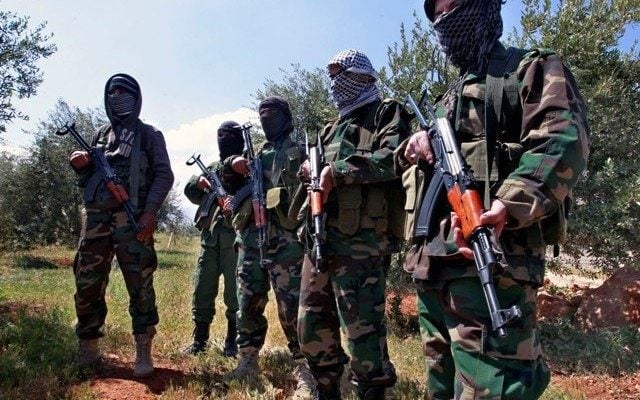
By Daniel Siryoti, Israel Hayom via JNS.org
Hezbollah’s Al Manar satellite network has identified an individual who crossed the Israeli border into Lebanon on Monday as U.S. citizen Colin Emery.
According to Lebanese news reports, Emery is an American Jew. Lebanese officials informed the U.S. ambassador to Lebanon of the incident and are currently in talks with Washington, the reports said.
The Lebanese military confirmed security and intelligence forces were holding a U.S. citizen by the name of Colin Emery.
The IDF has launched a comprehensive investigation in an effort to understand how someone could cross from Israel into Lebanon undetected.
Earlier this week, the IDF declared it was ending “Operation Northern Shield” targeting Hezbollah’s cross-border attack tunnels. Altogether, six tunnels were discovered and neutralized during the operation, and information about additional tunnels was transferred to the United Nations peacekeeping force in Lebanon, UNIFIL.
16.

By Ayaz Gul January 21, 2019
Afghanistan’s Taliban opened a new round of peace talks Monday in Qatar with the United States, the insurgent group said.
A Taliban spokesman, Zabihullah Mujahid, said the two-day meeting in Doha will continue on Tuesday.
Zalmay Khalilzad, U.S. special representative for Afghanistan political reconciliation, is leading the U.S. delegation.
“Following American acceptance of the agenda of ending the invasion of Afghanistan and preventing Afghanistan from being used against other countries in the future, talks with American representatives took place today in Doha, the capital of Qatar,” Mujahid said. The session will continue Tuesday.
Khalilzad has held several rounds of talks with Taliban representatives in Qatar in recent months, and the last interaction between the two sides had taken place in the United Arab Emirates in December.
Diplomatic sources privy to the previous meetings told VOA that Taliban and U.S. delegations in their current dialogue are expected to finalize proposals they had exchanged in Abu Dhabi regarding a timeline for the withdrawal of foreign troops from Afghanistan. An immediate anticipated outcome could be a temporary cease-fire announced by the Taliban to build mutual confidence to keep the dialogue process moving forward.
Monday’s meeting was originally set to take place in Pakistan where Khalilzad stayed for several days before traveling to Qatar. Sources said Taliban officials refused to come to Islamabad unless the U.S. side agreed to discuss a withdrawal plan for U.S.-led foreign troops from Afghanistan.
The uncertainty following the Taliban’s backing away from the proposed meeting in Pakistan led to speculation about a breakdown in the peace dialogue.
U.S. Sen. Lindsey Graham, who undertook a daylong visit to Islamabad on Sunday, dismissed suggestions the dialogue with the Taliban was faltering, and praised Pakistan’s effort to help the Afghan peace process.
The South Carolina Republican senator, who is considered close to President Donald Trump, spoke after a meeting with Prime Minister Imran Khan.
“I can tell you, the fact that the effort that was made is good. It is going to take a while. I talked with Prime Minister Khan, and I think he is going to deliver a message that would be very helpful,” Graham said. He did not elaborate.
Monday’s U.S.-Taliban talks came as Khan also arrived in Doha for official meetings with the Qatari leadership. Diplomatic sources told VOA that Khan is likely to make contact with Taliban officials during the visit to encourage them to help in negotiating a political resolution to the Afghan war.
After ending his visit to Pakistan on Sunday, Khalilzad sounded upbeat about the future of Afghan peace talks, saying he had “good meetings” in Islamabad.
“I appreciate their (Pakistan’s) hospitality and resolve to push for Afghan peace. We’re heading in the right direction with more steps by Pakistan coming that will lead to concrete results,” the Afghan-born chief U.S. negotiator said.
Graham, in his press conference Sunday, noted Pakistan was taking significant steps under Khan’s leadership to promote Afghan peace and regional security. He praised Pakistan’s effort to fence the 2,600-kilometer largely porous border the country shares with Afghanistan to deter cross-border terrorism.
“I am going to go back and talk to President Trump about my meeting with Prime Minister Khan, and I am going to urge him to meet with the prime minister as soon as practical,” said Graham. “Prime Minister Khan was criticized over the past 10 or 20 years about talking about reconciliation with the Taliban. He was right.”
Before coming to power last July, Khan had consistently called for the U.S. to engage the Taliban in peace talks rather than using military power to end the Afghan war. His critics would call him “Taliban Khan” for demanding and supporting reconciliation with the Islamist Afghan Taliban.
17.

Russia rejects US demand to destroy new missile system
Mon Jan 21, 2019
Russia has rejected a US demand for Moscow to destroy a new cruise missile system, a weapon Washington alleges is in violation of the landmark Intermediate-range Nuclear Forces (INF) Treaty.
Russian Deputy Foreign Minister Sergei Ryabkov said Monday it was unacceptable for Washington to demand Moscow destroy its SSC-8/9M729 cruise missile, denying the missile system is in breach of INF.
INF was a Cold-War era treaty signed in 1987 that eliminated all nuclear and conventional missiles with ranges of 1,000–5,500 km (620–3,420 mi).
Ryabkov also said Russia has proposed putting on a demonstration of the missile for the United States, the Interfax news agency quoted him as saying.
“We are ready to show unprecedented transparency on the 9M729 missile, which alarms the Americans so much. We offered them a presentation and a briefing on the missile, which absolutely does not follow from the content of the treaty itself,” he said.
“But at the same time, we insist that the Americans take practical steps to alleviate our concerns on the Aegis Ashore systems, deployed in Romania, whose deployment is also scheduled in Poland soon.”
The statement comes after earlier in the day US disarmament ambassador Robert Wood called on Russia to “verifiably destroy” the missiles in order to save the INF treaty and accused Moscow of destabilizing global security.
Wood said the system was capable of carrying both conventional and nuclear warheads and represented a “potent and direct threat to Europe and Asia” as it had a range of 500 to 1,500 kilometers (310-620 miles).
“Unfortunately, the United States increasingly finds that Russia cannot be trusted to comply with its arms control obligations and that its coercive and malign actions around the globe have increased tensions,” Wood told the UN-sponsored Conference on Disarmament.
US President Donald Trump’s administration last week rejected an offer by Moscow to save the INF treaty, claiming it could not be properly verified, setting the stage for Washington to withdraw from the pact next month.
Moscow has refuted the US allegations, pointing out that Washington has provided no proof that Russia has, in fact, violated the treaty by deploying the missiles.
Russian Foreign Minister Sergei Lavrov said Friday that Washington’s stance on the INF jeopardizes further nuclear disarmament and the sustainability of the non-proliferation treaty.
Ties between Moscow and Washington have plummeted to levels not seen since the Cold War due to the two countries’ disputes over the crises in Ukraine and Syria and after US officials accused Russia of meddling in the 2016 US presidential election.
Western countries have levied broad economic sanctions against Moscow over its support for pro-Russia forces in eastern Ukraine and Crimea’s reunification with Russia.
US intelligence agencies allege that Russia had influenced the US presidential election in November that year to help Trump get elected, an allegation that the US president and Russia have strongly denied.
18.
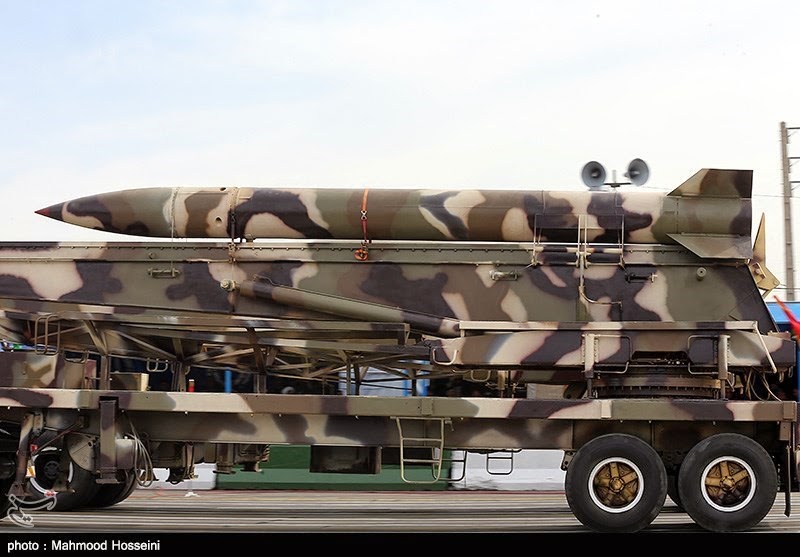
01-21-19
Iran: ‘We are prepared to eliminate Israel‘
We are prepared for the decisive battle against Israel, which will lead to its elimination, Aziz Nasirzadeh, the commander of the Iranian air force, was quoted by Al Jazeera as saying Monday morning, several hours after Israeli forces hit Iranian and Assad regime positions in Syria.
Iranian forces fired a rocket at northern Israelon Sunday, which was intercepted by Israel s Iron Dome anti-missile system.
Earlier in the day, Syria announced its air defense systems had foiled an Israeli air strike in the south of the country.
The Russian military claimed that Syrian surface-to-air systems provided by Russia had downed seven Israeli missiles fired at targets in Syria.
In response to the rocket attack, however, Israeli forces pounded multiple Iranian and Syrian targets, reportedly killing 11 soldiers.
Following the attack on northern Israel, the Israeli military has ordered the closure of Mount Hermon near the Syrian border to visitors.
IDF forces in the Golan have been placed on elevated alert, Hadashot 12 reported.
(Photo – Wiki Commons)
19.
WHY HASN’T SYRIA USED THE S-300?
When the S-300 missile system was deployed it was portrayed as a game changer. But Reuters had reported in 2015 and again in October 2018 that Israel had trained against the S-300 system in Greece.
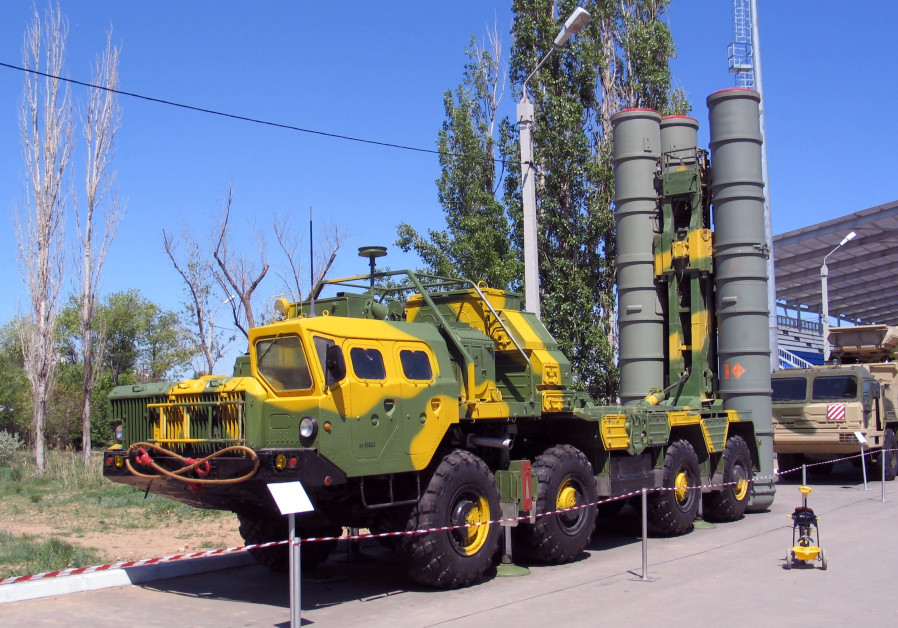
The continuing quiet among the S-300 gunners is a perplexing mystery that underpins the shadowy and deadly conflict unfolding in Syria’s skies. In late September, Russia announced it would give the Syrian regime the S-300 system in the wake of Syrian air defenses mistakenly shooting down a Russian Il-20. The Syrians had used an S-200 to hit the Russian plane, mistaking it for an Israeli warplane during an Israeli raid in Latakia.
New electronic warfare systems were also sent to Syria, including systems designed to control a “near zone” 50 km. from the system and a far zone “200 km.” away that would guard against Israeli attacks, according to a report at Janes.
Since the deployment of the S-300, there was a hiatus in attacks between October and late December. However, Syrian air defense was on alert, saying that its radars were jammed on November 30. This has led to speculation that Syrian air defense was tested several times between October and December.
An air strike on December 25 and then on January 12 were reported by Syrian media. Syria says it was able to shoot down Israeli missiles on January 12. Yet the three batteries of S-300s have apparently remained dormant. Part of the story with the S-300 can be realized from Russian media reports, which have emphasized that the system was not used or have pointed to other, older systems being used.
Is this because the Syrians are not trained on the system? All three battalions of S-300 PMU-2 systems were active by early November, Syrian media indicated. “Russian technical specialists completed the reconfiguration of the system to replace the Russian codes and letter frequencies to the letter codes and radars of Syrian ones,” a report noted.
OBSERVERS OF Syria note that the issue is not that the S-300 is ineffective. One expert who tweets under the name Tom Cat (@TomTheBasedCat) notes “the priority [of Syrian air defense] is to intercept the majority of the projectiles to minimize risk to civilians in the surrounding suburbs.” In this analysis, Syria’s goal isn’t to use air defense to strike at Israeli jets.
20.
IDF COMICALLY RESPONDS TO IRANIAN ATTACK FROM SYRIA IN TWITTER POST
This is not the first time an official Israeli office has made a comic Twitter post.
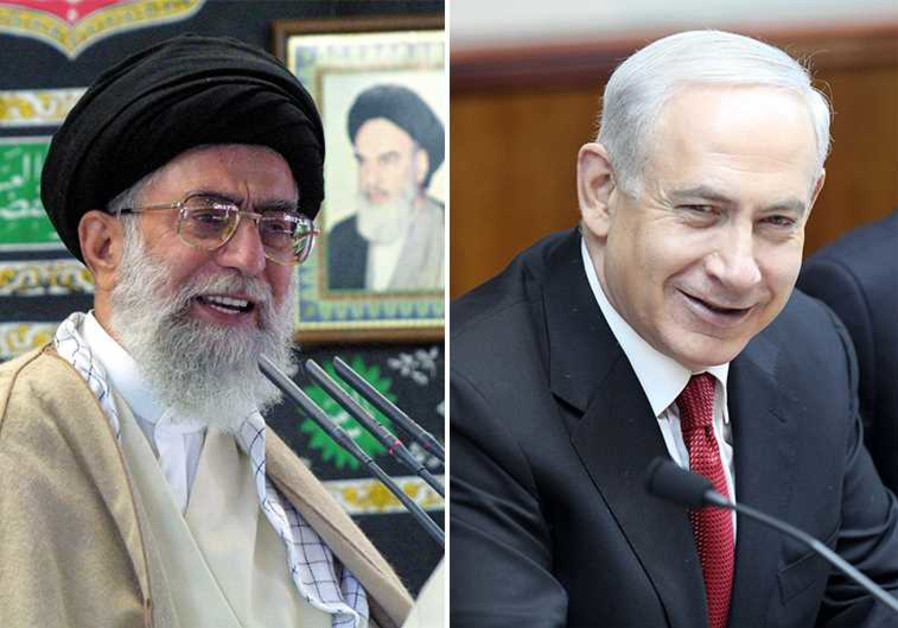
“The firing of the missile yesterday – a launch that could have killed civilians – was fired by Iranians out of Damascus within an area that we were promised that there would be no Iranians,” IDF spokesman Brig.-Gen. Ronen Manelis told reporters on Monday.
The IDF, in response, released a post on their Twitter page on Monday afternoon with a map pointing out in the playful font Comic Sans where Iran is in contrast to where it should be.
Iran, you seem to be lost. Here: pic.twitter.com/ByrDyUjWDr
— Israel Defense Forces (@IDF) January 21, 2019
This is not the first time official Israeli agencies have been trolls online.
In June 2018, Iranian Supreme Leader Ayatollah Ali Khamenei wrote on Twitter that Israel “is a malignant cancerous tumor in the West Asian region that has to be removed and eradicated.”
The Israeli embassy in the US responded with a GIF image of the famous movie Mean Girls in which one character asks, “Why are you so obsessed with me?” pic.twitter.com/1dRRE7Nv1s
— Embassy of Israel (@IsraelinUSA) June 4, 2018
Anna Ahronheim contributed to this report.
21.
ISRAEL, AZERBAIJAN STRENGTHEN AND EXPAND STRATEGIC PARTNERSHIP
One of the main reasons for this strong relationship is the human factor – a long and close fraternal friendship between Azerbaijanis and the Jewish community living in Azerbaijan.

A Drone model on display at the booth of drone maker Israel Aerospace Industries at the Singapore Airshow earlier this year. (photo credit: REUTERS)
The Israeli defense company Elbit manufactures drones for Israel’s military. Elbit Systems has sold Azerbaijan its latest unmanned aerial vehicle, which is capable of long-range, precise, tactical kamikaze strikes, The Jerusalem Post reported on January 11. It has now sold its SkyStriker drone, which can destroy a target on impact, to Azerbaijan. This makes Azerbaijan the first country outside of Israel to receive the drone.
According to the Stockholm International Peace Research Institute, Azerbaijan as was third-largest purchaser of Israeli arms in 2017 ($137 million). Prime Minister Benjamin Netanyahu, during his official visit to Baku in December 2016, revealed that Azerbaijan had up to that time bought $5 billion worth of Israeli weapons.
Presently, the friendly and trusting ties of cooperation and partnership of the State of Israel and Azerbaijan represent a true and ideal model for most countries in the world. In the most difficult times, these countries have always been together and always offered mutual support.
One of the main reasons for this strong relationship is the human factor – a long and close fraternal friendship between Azerbaijanis and the Jewish community living in Azerbaijan.
Unlike many cultures, Azerbaijanis have never viewed Jews as foreign or alien. Israelis with roots in Azerbaijan for many years are doing a great deal to foster the emerging economic and even geopolitical cooperation between Azerbaijan and Israel. The Jewish people have lived in the territory of Azerbaijan for over 2,600 years and have never experienced harassment, insults, pogroms or antisemitic actions. Thus, the relationship in almost all fields of life between the two states is at a sufficiently high level.
Looking at the southern Caucasus, where Azerbaijan is located, it can be seen with an unaided eye that this country is in a very complex “geopolitical sandwich,” where unpredictable and unordinary geopolitical actors such as Russia, Turkey and Iran are located. Despite this complex geopolitical labyrinth of the South Caucasus, Azerbaijan successfully pursues its multi-vector foreign policy and it manages to maintain stability in the country.
Another company, Israel Aerospace Industries, reportedly has in the past sold its own Harop drone to Azerbaijan, which has not tried to conceal its use of them to surveil movements in Nagorno-Karabakh, an integral part of Azerbaijan that has been occupied by ethnic Armenian military forces since the late 1980s. The military-technical partnership between Israel and Azerbaijan is actively and permanently developing and strengthening. In recent time, some Israeli media, with the help of some representatives of the Armenian lobby in Israel, have been trying to spread false information about the “problems” in Israeli-Azerbaijani military cooperation.
After the events of April 2016, during a rapid counter-offensive, the Armenian side’s front defense line was broken in multiple places and the Azerbaijan Army recaptured several strategic heights and inhabited places. We actually have seen anti-Israeli hysteria and antisemitism in Armenia. Even in Israel the Armenian community held rallies against the Azerbaijani-Israeli partnership.
THE MILITARY agreements signed between the two countries, worth about five billion dollars, granted Azerbaijan better technology and an ally to the northern border with Iran. Fundamentalist Iran and aggressive Armenia, which continue to occupy 20% of Azerbaijan’s lands, are interested in Azerbaijan turning off cooperation with the State of Israel on security issues and the struggle against terrorist threats. Official Tehran is trying to isolate Azerbaijan from Israel and the West, although this is theoretically impossible, because in this sense Iran is a more neutral country with respect to the Karabakh conflict than Israel. Israel is very important for Azerbaijan, not only an economic and political partner, but also as a strategic partner on security, geopolitical and military issues.
Concerning the criticism of Armenia on Israeli-Azerbaijani military cooperation, it is necessary to emphasize that Azerbaijan and Israel choose their friends and partners themselves, and they determine the level of strategic cooperation and partnership in the military-technical field. Moreover, no one has the right to interfere with these partnerships.
Azerbaijan does not question the military bases of the third state – the Russian Federation – on the territory of Armenia and what military assistance it provides and will provide to the Republic of Armenia. It is absolutely absurd and senseless when a country that has been occupying the territory of Azerbaijan for more than 27 years accuses Baku of violating the norms of international law. Armenia started its undeclared war with the goal of extending Armenian territory to the greatest degree possible at the expense of Azerbaijan.
The worst atrocity took place on February 26, 1992, when Armenian forces perpetrated an act of genocide against Azerbaijani civilians in the town of Khojaly. The bloody massacre that transpired in that small Azerbaijani town was also a crime against humanity. Armenian armed forces have committed unspeakable atrocities and barbaric acts – 613 people were killed, 487 people were crippled, and 1,275 civilians – men, women, children and the elderly – were captured, murdered, raped and tortured. Most notably, the mass extermination of the civilian population of Khojaly was carried out for one reason: all were Azerbaijanis. International journalists and an official an Azerbaijani investigation reported disfigured corpses, dead women and children, and the murder of fleeing civilians.
It is a historical fact that no country in Eurasia has closer or warmer ties with Israel than Azerbaijan. The relationship between the two countries is particularly surprising because Azerbaijan is a majority-Muslim secular country. Israel has always been attracted to Azerbaijan, not only because there is no antisemitism in that country, but also because Baku has repeatedly denounced manifestations of antisemitism elsewhere. This mutual attraction is especially true given the dramatic and continuing expansion of economic ties between Israel and Azerbaijan.
The author is a political analyst.
22.
Rusya’da neler oluyor? Havada hareketli saatler
Moskova’ya giden uçağın bir kişi tarafından Afganistan’a kaçırılma girişiminde bulunulduğu bildirildi. Uçaktaki silahlı kişinin gözaltına alındığı belirtilirken, uçağın, Surgut’un batısındaki Khanty-Mansiysk’e zorunlu iniş yaptığı bildirildi.

Uçakta 69 yolcu ve 7 mürettabat bulunuyordu. Silahlı kişi gözaltına alındı.

Uçağın, Surgut’un batısındaki Khanty-Mansiysk’e zorunlu iniş yaptığı bildirildi.
Rus medyasında uçağı kaçırma girişiminde bulunduğu iddia edilen kişinin fotoğrafı servis edildi, ancak henüz yetkililer tarafından bir açıklama gelmedi.

Nazlı Ilıcak’a verilen ceza belli oldu!
Gazeteci Nazlı Ilıcak, “Devletin güvenliğine ilişkin gizli kalması gereken bilgileri açıklamak” suçundan 5 yıl 10 ay hapis cezasına çarptırıldı

Askeri istihbarat da Tahşiyeciler’i takibe almış
Askeri istihbarat raporunda Tahşiye grubunun El Kaide bağlantıları ortaya konuluyor
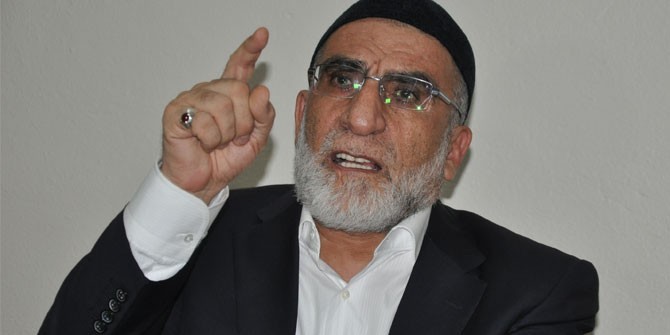
03 Ocak 2015
26.
NETANYAHU TO SOLEIMANI: WE WILL NOT STOP FIGHTING AS LONG AS I LEAD
“As long as I am prime minister, we will not stop fighting against them,” Prime Minister Benjamin Netanyahu tweeted.
This visit, the report claimed, is what triggered Israel’s rare daytime strikes on Iranian targets in the vicinity of Damascus International Airport on Sunday. This, in turn led to Iranian forces launching a surface-to-surface missile towards northern Israel’s an hour later.
Quoting a source, the report said that Soleimani – one of the most prominent and influential military figures in Iran – visited eastern Ghariyya in the Daraa province less than 40 km. from the Israeli-controlled Golan Heights. According to the source, Soleimani’s visit to a home in the area between 8-10 p.m. was monitored by intelligence officials.
“Soleimani’s visit to a location less than 40 km. from the ceasefire line in the Golan Heights violated a previous US-Russian-Israeli agreement,” regarding the Iranian presence in the war-torn country, the report said.
Israel has worked closely with the United States and Russia to try and get Iranian and Hezbollah forces to leave Syria, where they have been fighting alongside forces loyal to Syrian President Bashar Assad, since the civil war began there in March 2011.
While there has been a reduction of Iranian and Hezbollah fighters in Syria’s Golan Heights, “The possibility of opening the Golan front against Israel in the event of an attack on its territory,” remains an option for Soleimani. He has recommended to the Russians that Iran would not comply with any red lines set by the Jewish State, according to the report.
The report also claimed that the Russians had notified the Iranians 30 minutes in advance of which targets Israel would attack, adding “The Iranians managed to evacuate the areas and minimize the damage.”
Moscow intervened in the Syrian conflict in September 2015 on behalf of President Assad. Israel and Russia have been using a deconfliction mechanism in place over Syria in order to avoid any unwanted conflict.
The relationship between Jerusalem and Moscow has been strained, since a Russian military plane was downed by Syria air defenses following an Israeli airstrike on nearby Iranian targets.
Nevertheless, the IAF has largely had free reign to carry out strikes on targets that are deemed a threat to the Jewish State.
On Sunday, the IDF said that the surface-to-surface missile launched by the Iranians towards Mount Hermon had been fired from an area in the vicinity of Damascus, which the “relevant parties” had assured would be free from Iranian forces.
According to the report, a senior Iranian official said Solemani returned to Tehran on Monday following the confrontation between the two countries, and debriefed the Iranian Supreme National Security Council on his visit to Syria and the Israeli attacks.
According to Soleimani, the only way to stop Israeli attacks is to respond with three missiles for every one Israel fires, and to attempt to shoot down Israeli fighter jets, even those flying over Lebanon. He stressed the need to respond to strikes as they would lead to the fall of Prime Minister Benjamin Netanyahu in the upcoming elections.
“If any strike is directed at Iranian forces they will respond in the way it deems appropriate,” the report said.
On Tuesday, Syria’s Ambassador the United Nations, Bashar Jaafari, threatened that Damascus would target Ben-Gurion Airport if the UN Security Council does not put an end to the Israeli strikes.
“Does drawing the attention of the war-makers in this Council require us to exercise our legitimate right to self-defense and respond to Israeli aggression on Damascus International Airport by responding in the same way to Tel Aviv Airport?” He was quoted as saying, by Syria’s SANA news agency.
“Isn’t it time now for the UN Security council to stop the Israeli repeated aggressions on the Syrian Arab republic territories?”
ABD’nin Suriye’den çekilmesiyle ilgili Rusya’dan açıklama
“ΧΑΙΡΕΤΕ“!
“ΕΛΛΗΝΑΣ“
-/-


